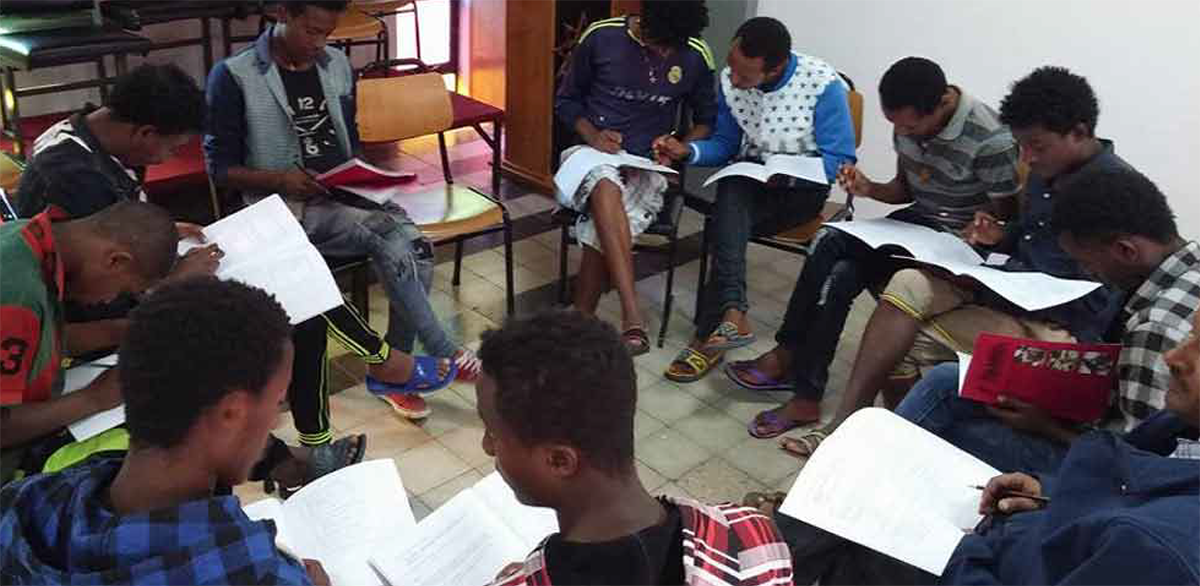A study circle is a small group that meets at least once or twice a week for a few hours, usually in the home of one of its members, to study the course materials. Anyone aged fifteen or older, whether a Bahá’í or not, is welcome to take part. The group is brought together by a tutor associated with the training institute. Tutors do not hold any special status. They are simply those who are further along in their study of the materials. Everyone can potentially serve as a tutor on some occasions, while taking part as a member of a study circle on others. All those participating are seen as active agents of their own learning, and tutors strive to create an atmosphere that encourages individuals to assume ownership for the educational process in which they are engaged.
The purpose of Bahá’í study circles is to provide participants with the knowledge, spiritual insights and skills to enable them to contribute to the betterment of society, starting with their own neighborhood. This is done through systematic study of a sequence of courses based on the Bahá’í Writings using the courses of the Ruhi Institute.
“A distinguishing feature of study circles is that in many countries, and across diverse cultures, they have created a new dynamic within the community and have become nuclei of community life and catalysts for teaching, service, and community development. In addition to study of the institute courses, the members of the study circle, both Bahá’ís and non-Bahá’ís often participate in service and extracurricular activities that bind the group together in fellowship and attract others to this mode of learning.”
International Teaching Centre, 2000 Feb, Training Institutes and Systematic Growth, p. 7
Study circles are held all around Ethiopia and are open to all. You are invited to take inspiration from the Bahá’í teachings, benefiting from whatever gems of wisdom and knowledge will help you to address the challenges you face.
Interesting blog? Like it on Facebook, +1 on Google, Tweet it or share this article on other bookmarking websites.

